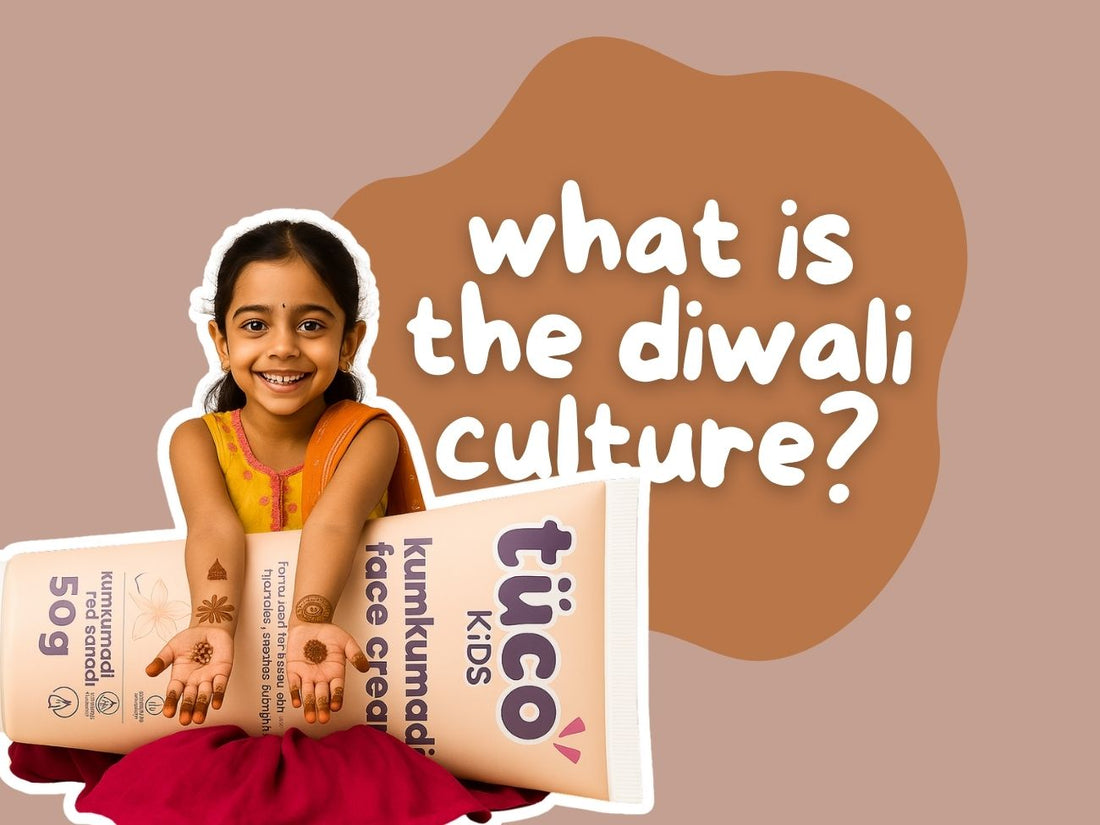
Diwali Culture for Kids: Why We Clean Homes, Wear New Clothes & Share Sweets
Diwali is one of the brightest and most loved festivals of India. Kids know it as a time for lights, sweets, and fireworks but Diwali is much more than that. It’s a celebration of goodness, gratitude, and togetherness. Every little thing we do during Diwali from cleaning our homes to wearing new clothes, everything has a special meaning.
This blog helps parents explain to children why we celebrate Diwali and what each tradition teaches us.
Why Do We Celebrate Diwali?
The word Diwali comes from the Sanskrit word Deepavali, which means “a row of lights.” The festival celebrates the victory of good over evil and light over darkness.
There are many stories connected to Diwali, but all of them share one message that kindness, honesty, and light always win.
-
In North India, people celebrate the return of Lord Rama to Ayodhya after defeating Ravana. The people welcomed him by lighting thousands of diyas.
-
In Gujarat, Diwali marks the beginning of a new financial year and honors Goddess Lakshmi, the goddess of wealth and prosperity.
-
In South India, it celebrates Lord Krishna’s victory over the demon Narakasura, symbolizing the triumph of courage and truth.
Parents can use this story as a teaching moment.
When you tell your child about Lord Rama returning home or Krishna defeating Narakasura, talk about what “light” really means - kindness, honesty, courage. Ask them small reflective questions like:
-
“What kind thing did you do today that brought light to someone’s day?”
-
“What’s one good habit you’d like to start this Diwali?”
Parent Insight: Kids learn values best through conversations, not lectures. Turn the Diwali story into a bedtime talk about doing good, helping others, and choosing kindness over anger - hat’s how tradition becomes personal.
Why Do We Clean Our Homes Before Diwali?
Before Diwali, families across India begin a cleaning marathon — dusting, sorting, and decorating their homes. But why do we do this every year?
-
Welcoming Positivity and Goddess Lakshmi: It’s believed that Goddess Lakshmi visits clean and bright homes to bless them with happiness and prosperity.
-
New Beginnings: Cleaning helps us let go of old clutter - just like we should let go of bad habits or worries - and start fresh.
- Teaching Responsibility: For kids, cleaning teaches teamwork, care for their space, and the joy of keeping surroundings tidy.
Parent Insight: Instead of doing all the cleaning alone, make it a fun family ritual. Give your child small, age-appropriate tasks - like sorting old toys, wiping books, or decorating corners.
Afterward, donate a few old items together to someone who needs them. It’s a beautiful way to teach children that Diwali isn’t just about shining lights in our homes - it’s about spreading light in others’ lives too.
This simple act turns “cleaning” into a meaningful moment of empathy and gratitude.
Just like we take time to clean and refresh our homes before Diwali, our bodies also need the same care and attention, especially when it comes to children. Festivals are a great opportunity to teach kids that hygiene is not just a daily habit but also a part of celebrating and feeling their best. Tuco Kids makes this easier with gentle, thoughtfully designed routines that care for every stage of growth.
Their Sensitive and Dull Skin Regimen is made to cleanse, nourish, and brighten delicate skin without irritation, while the Oily and Acne Care Regimen supports pre-teens as their skin changes and helps prevent breakouts. For hair care, the Tangled Hair Routine keeps hair soft and easy to manage, and the Dandruff Care Regimen maintains scalp health and comfort. They even offer a Safe and Natural Makeup Box, so kids can enjoy dressing up during festivities without being exposed to harsh ingredients. Each product range is designed to make hygiene simple, safe, and joyful, turning self-care into a natural part of growing up.
Why Do We Wear New Clothes on Diwali?
Wearing new clothes on Diwali isn’t just about looking festive — it has deeper meaning.
-
Fresh Start: Just as we clean our homes, wearing new clothes symbolizes starting a new chapter with good energy.
- Confidence and Joy: Dressing up makes everyone feel cheerful and special, adding to the festival’s sparkle.
Parent Insight: Instead of focusing on expensive outfits, focus on meaningful moments.
You can teach your child to:
-
Pick one outfit they already love and decorate it with sequins or fabric paint to make it “new.”
-
Choose one outfit to gift or donate to another child.
That way, kids learn that celebration isn’t about showing off — it’s about sharing happiness and creativity.
Why Do We Share Sweets on Diwali?
If there’s one thing kids wait for the most, it’s Diwali sweets! But sharing sweets has a cultural meaning too:
-
Spreading Joy: Sweets represent happiness and togetherness - when we share them, we share smiles.
-
Expressing Gratitude: Gifting sweets is a simple way to thank friends, family, and neighbors for being part of our lives.
- Strengthening Bonds: Sweets connect generations - from grandmothers making laddoos to kids distributing them.
Parent Insight: This year, involve kids in making or packing sweets. Encourage them to personally gift a small box to neighbors, school staff, or delivery workers who make life easier every day.
It helps them experience that the “sweetness” of Diwali is not just in sugar, but in kindness.
What These Traditions Teach Children
Explaining Diwali customs to kids helps them understand that the festival is more than fireworks and sweets; it’s about values and togetherness.
-
Cleaning teaches responsibility.
-
Wearing new clothes teaches respect for tradition.
-
Sharing sweets teaches kindness and empathy.
-
Celebrating together builds love and belonging.
Diwali reminds families that light, both within and around us, grows stronger when shared.
Final Thought
Diwali is the festival that teaches children the beauty of light, the importance of kindness, and the joy of giving. By helping them understand why we clean homes, wear new clothes, and share sweets, parents pass on lessons of gratitude, simplicity, and hope.
So this Diwali, while your home shines bright, make sure your child’s heart does too — full of love, learning, and gentle care.
